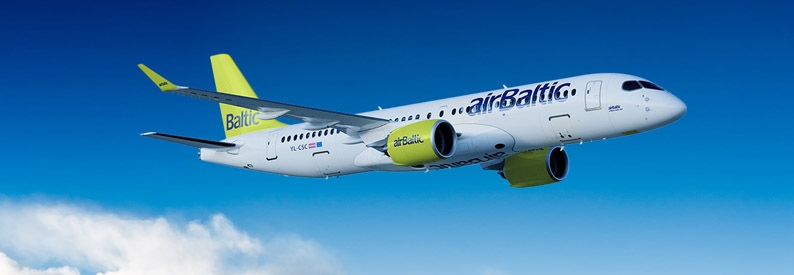AirBaltic Faces Tight Deadline to Repay €200 Million Bond Debt Amid Plans for Stock Exchange Listing

Latvia’s national airline, airBaltic, is on a six-month deadline to secure €200 million (approximately USD215.5 million) to repay investors for bonds issued in 2019, according to CEO Martins Gauss. In a recent interview on Latvijas Televīzija’s (Latvian Television) program De Facto, Gauss expressed optimism about meeting this financial obligation, albeit acknowledging the potential necessity for state assistance.
This repayment is crucial for airBaltic’s ambition to list on the Nasdaq Riga stock exchange, slated for the latter part of this year. Despite the airline’s growing turnover, Gauss did not discount the possibility of requiring support from the Latvian government, the airline’s majority shareholder, given the anticipated high borrowing costs.
During the Latvian Capital Market Forum 2024, airBaltic’s Chief Financial Officer Vitolds Jakovļevs disclosed the airline’s negative equity status of €71 million (USD76.5 million), signaling likely higher interest rates for any new loans. However, airBaltic has seen a significant increase in revenue, with expectations to report €668 million (USD720 million) for 2023, potentially marking its first profitable year since 2018.
The urgency stems from a €200 million bond repayment due on July 30, a sum the airline currently does not possess. Gauss revealed that issuing new bonds to refinance the debt is off the table for the moment, with the airline considering three alternatives: borrowing from private lenders, issuing new bonds, or seeking state intervention.
Gauss emphasized airBaltic’s preference to handle the refinancing independently, through private lenders or capital market financing, to avoid seeking government support. Nonetheless, he acknowledged the potential role of the Latvian government as a shareholder in the process.
The Baltic region’s current perception as a high-risk investment area, primarily due to geopolitical tensions stemming from Russia’s war in Ukraine, complicates airBaltic’s refinancing efforts. Despite this, Gauss is confident in the airline’s ability to attract lenders, pointing to the recovery of its 2019 bonds in the market as evidence of investor confidence in airBaltic’s financial health and operational strategy.
As airBaltic navigates these financial challenges, Gauss remains optimistic about the airline’s prospects, attributing market concerns to local social media speculation rather than the company’s actual performance. The upcoming months are critical for airBaltic as it seeks to stabilize its financial footing and advance towards its stock exchange listing ambitions.
